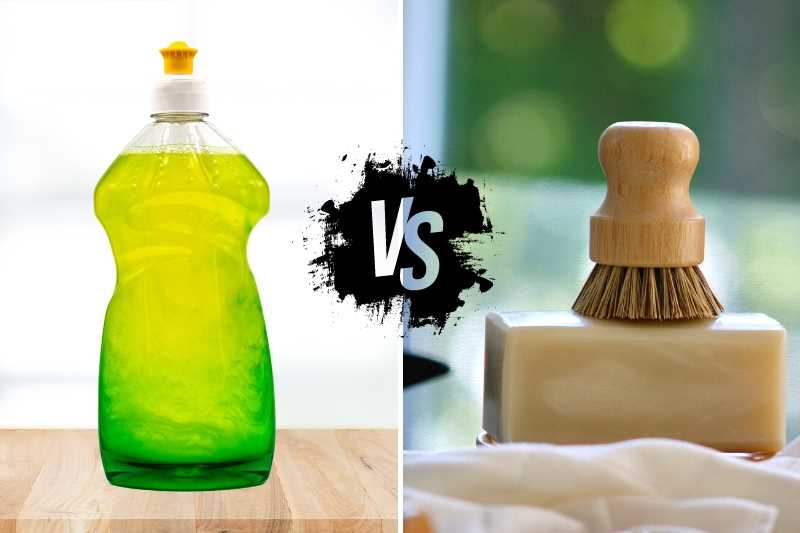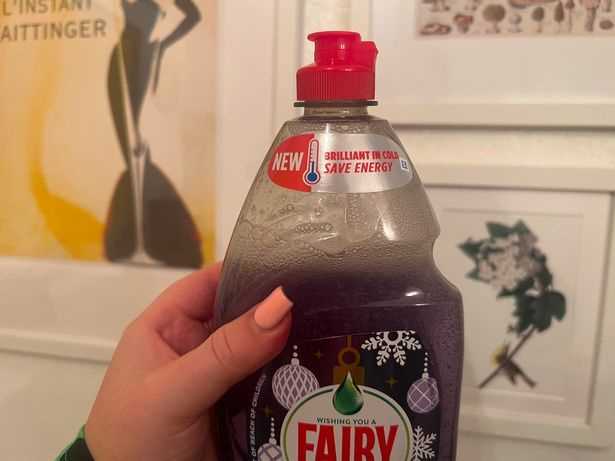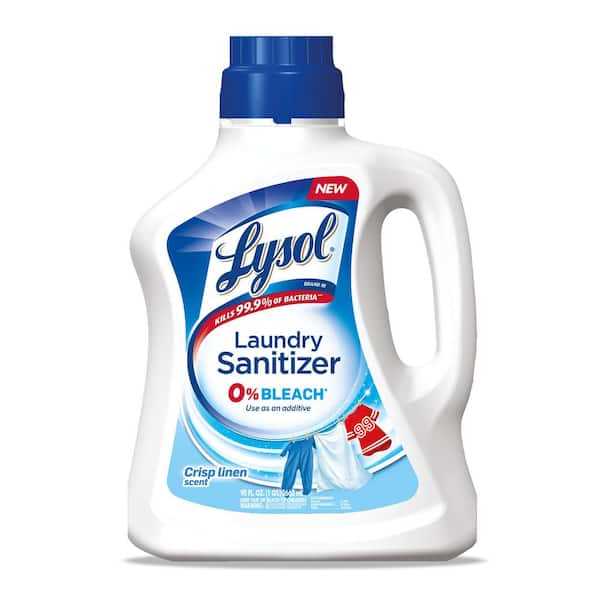




In today’s fast-paced world, keeping our homes clean and free from harmful bacteria is of utmost importance. One of the products we rely on to achieve this is washing up liquid. But does washing up liquid actually kill bacteria? Let’s explore the truth behind this common household item.
Washing up liquid, also known as dish soap, is primarily designed for removing grease and food residue from dishes and utensils. While it is effective at breaking down oils and dirt, its ability to kill bacteria is often misunderstood.
So, does washing up liquid kill bacteria?
Contrary to popular belief, washing up liquid alone is not enough to kill bacteria. Although it may reduce the number of bacteria present on surfaces, it does not have the same disinfecting properties as antibacterial cleaners. Washing up liquid is more focused on removing visible dirt and grime, rather than targeting and eliminating bacteria.
It’s important to note that while washing up liquid may not kill bacteria, it plays a vital role in the overall cleanliness of our homes. By effectively removing food residue and grease from our dishes, it helps reduce the chances of bacterial growth and contamination. However, for situations where thorough disinfection is required, it is recommended to use antibacterial cleaners specifically formulated for killing bacteria.
The Effectiveness of Washing Up Liquid in Killing Bacteria
Washing up liquid is a common household cleaning product that is often used to clean dishes and utensils. While its primary purpose is to remove grease and food residues, many people wonder if washing up liquid is also effective in killing bacteria.
1. How does washing up liquid work?
Washing up liquid contains surfactants, which are compounds that lower the surface tension of water, allowing it to spread and penetrate more easily. When you mix washing up liquid with water, it creates a solution that is effective in cutting through grease and removing dirt.
2. Can washing up liquid kill bacteria?
Although washing up liquid can help remove bacteria from surfaces, it is not primarily designed to kill bacteria. Washing up liquid is more effective in physically removing bacteria by breaking down the grease and dirt on which the bacteria may be present.
3. Why is physical removal important?
Physical removal of bacteria is an important step in reducing the risk of infections and foodborne illnesses. By removing bacteria from surfaces, you can reduce their transfer to other objects or onto your hands, decreasing the chances of contamination.
4. Are there alternative cleaning products that are more effective at killing bacteria?
If your goal is to kill bacteria rather than just remove them, there are alternative cleaning products available that are specifically designed for this purpose. Disinfectants and antibacterial cleaners contain ingredients that can destroy or inhibit the growth of bacteria.
5. When should you use disinfectants?
Disinfectants should be used in specific situations where bacteria pose a significant risk, such as when there has been a known contamination or during outbreaks of infectious diseases. In everyday cleaning, washing up liquid is generally sufficient for removing bacteria and maintaining hygiene.
While washing up liquid may not be the most effective product for killing bacteria, it still plays an important role in maintaining cleanliness and removing food residues. By properly cleaning and sanitizing your dishes and utensils, you can help reduce the risk of bacterial contamination and ensure you and your family stay healthy.
Understanding the Role of Active Ingredients in Washing Up Liquid
Washing up liquids contain a combination of active ingredients that work together to remove dirt, grease, and bacteria from dishes and utensils. These active ingredients are designed to break down and lift away dirt and grime, making them an essential part of any effective washing up liquid.
1. Surfactants

- Surfactants are the primary active ingredients in washing up liquids.
- They work by reducing the surface tension of water, allowing it to spread and penetrate grease and dirt.
- Surfactants also help to emulsify oils and fats, making them easier to remove.
2. Enzymes
- Some washing up liquids may contain enzymes as active ingredients.
- Enzymes are biological molecules that speed up chemical reactions.
- In washing up liquids, enzymes help to break down proteins and fats, making them more effective at removing tough stains and dried-on food.
3. Fragrances
- Fragrances are often added to washing up liquids to give them a pleasant scent.
- While not directly involved in the cleaning process, fragrances can enhance the overall experience of using the product.
4. pH Adjusters
- pH adjusters are used to maintain the optimal pH level of washing up liquids.
- They ensure that the detergent is effective in removing dirt and grease, as well as being gentle on the skin.
- Most washing up liquids have a slightly alkaline pH, which helps to break down oils and fats.
5. Preservatives
- Preservatives are added to washing up liquids to prevent the growth of bacteria and fungi.
- They help to extend the shelf life of the product and ensure that it remains safe to use.
6. Water
- Water is the main ingredient in washing up liquids, serving as a solvent for the active ingredients.
- It helps to dilute the detergent and facilitate the cleaning process.
- High-quality washing up liquids typically contain a high percentage of water.
In conclusion, understanding the role of active ingredients in washing up liquids can help you choose the most effective product for your cleaning needs. Surfactants, enzymes, fragrances, pH adjusters, preservatives, and water all play a crucial role in breaking down dirt, grease, and bacteria, leaving your dishes clean and hygienic.
Factors That Can Affect the Ability of Washing Up Liquid to Kill Bacteria
While washing up liquid is generally effective at killing bacteria, there are several factors that can affect its ability to do so. These factors include:
- Concentration: The concentration of the washing up liquid can impact its effectiveness against bacteria. Generally, higher concentrations of active ingredients in the washing up liquid will have a better bacteria-killing effect.
- Exposure time: The amount of time the washing up liquid is in contact with the bacteria can also influence its ability to kill them. Longer exposure times generally result in more effective bacteria elimination.
- Temperature: The temperature of the water and washing up liquid mixture can also play a role in its ability to kill bacteria. Warmer temperatures can enhance the effectiveness of the washing up liquid against bacteria.
- Type of bacteria: Different types of bacteria may have varying levels of resistance to washing up liquid. Some bacteria may be more resistant and require stronger concentrations or longer exposure times to be eliminated.
- Surface contamination: The level of contamination on the surface can affect the washing up liquid’s ability to kill bacteria. If the surface is heavily soiled or greasy, it may be more difficult for the washing up liquid to penetrate and effectively eliminate the bacteria.
It is important to note that while washing up liquid can help kill bacteria, it may not eliminate all types of harmful microorganisms. Additionally, proper hygiene practices, such as thorough handwashing, cleaning and disinfecting surfaces, and using antibacterial products when necessary, are essential for maintaining a safe and sanitary environment.
The Importance of Proper Handwashing Techniques
Proper handwashing techniques are crucial for maintaining good hygiene and preventing the spread of diseases. It is a simple yet effective way to protect yourself and others from harmful bacteria and viruses.
When to wash your hands

- Before preparing or eating food
- After using the toilet
- After blowing your nose, coughing, or sneezing
- After handling garbage
- After touching animals or their waste
- Before and after caring for someone who is sick
- Before and after treating a cut or wound
The proper handwashing technique
Follow this step-by-step guide to ensure a thorough handwash:
- Wet your hands with clean, running water (warm or cold).
- Apply soap and lather well.
- Rub your hands together vigorously for at least 20 seconds, making sure to scrub all surfaces including the backs of your hands, between your fingers, and under your nails.
- Rinse your hands well under running water.
- Dry your hands using a clean towel or air dryer.
- Use a towel or your elbow to turn off the faucet to avoid recontamination.
The use of antibacterial soap
While regular soap is effective at removing germs from the hands, antibacterial soap contains additional chemicals that can kill or inhibit the growth of bacteria. However, it is important to note that the use of antibacterial soap is not always necessary and regular soap can still effectively remove most bacteria and viruses.
The role of washing up liquid in killing bacteria
Washing up liquid, commonly known as dish soap, is primarily designed for cleaning purposes and may not have the same antibacterial properties as hand soap. While it can help remove dirt, grease, and some germs from the hands, it may not be as effective in killing bacteria as hand soap or antibacterial soap.
The importance of hand drying

Drying your hands thoroughly after washing is equally important as it helps to remove any remaining moisture that may harbor bacteria. Moist hands can transfer bacteria more easily than dry hands, so it is essential to dry them properly to minimize the risk of spreading infections.
Conclusion
Proper handwashing techniques are essential for maintaining good hygiene and preventing the spread of diseases. By following the recommended handwashing steps and using soap or antibacterial soap, you can minimize your risk of getting sick and help protect others.
Alternatives to Washing Up Liquid for Killing Bacteria
While washing up liquid is commonly used to kill bacteria on dishes and utensils, there are also other alternatives you can consider. These alternatives can be just as effective in eliminating harmful bacteria. Here are some options:
Vinegar
Vinegar is a natural disinfectant that has been used for centuries. Its acidic nature helps to kill a wide range of bacteria and other pathogens. You can create a solution by mixing equal parts vinegar and water, and then use it to clean your dishes and utensils.
Lemon Juice
Lemon juice is another natural alternative to washing up liquid for killing bacteria. The citric acid found in lemons helps to break down and destroy bacteria. Squeeze the juice of a lemon into a bowl of water and use it to wash your dishes and utensils.
Hydrogen Peroxide
Hydrogen peroxide is a powerful disinfectant that can effectively kill bacteria. You can dilute it with water and use it as a cleaning solution for your dishes and utensils. However, be cautious when handling hydrogen peroxide, as it can be corrosive in higher concentrations.
Antibacterial Essential Oils
Certain essential oils have antimicrobial properties that can help kill bacteria. Tea tree oil, lavender oil, and eucalyptus oil are some examples of essential oils that possess antibacterial properties. Mix a few drops of your chosen essential oil with water and use it to wash your dishes and utensils.
Bleach
Bleach is a strong disinfectant that is commonly used in healthcare settings to kill bacteria. You can dilute bleach with water and use it to sanitize your dishes and utensils. However, be cautious when using bleach, as it can be harmful if ingested or if it comes into contact with certain surfaces or materials.
Boiling Water
One of the simplest and most effective ways to kill bacteria on dishes and utensils is by using boiling water. Simply bring a pot of water to a rolling boil and then immerse your dishes and utensils in the boiling water for a few minutes. This will help to kill any bacteria present.
Remember to always follow proper food safety practices and wash your hands before and after handling food, regardless of whether you are using washing up liquid or an alternative method to kill bacteria on your dishes and utensils.
FAQ
Does washing up liquid kill bacteria?
Yes, washing up liquid can kill bacteria. Washing up liquid contains surfactants, which are compounds that help break down the oils and fats on dishes. These surfactants can also disrupt the cell membranes of bacteria, leading to their death.
What is the active ingredient in washing up liquid that kills bacteria?
The active ingredient in washing up liquid that kills bacteria is typically a surfactant. Surfactants are molecules that have both hydrophobic (water-repellent) and hydrophilic (water-attracting) properties. They can disrupt the cell membranes of bacteria, causing them to break apart and die.
Is washing up liquid as effective as antibacterial soap?
While washing up liquid can kill some bacteria, it may not be as effective as antibacterial soap. Antibacterial soaps often contain additional ingredients, such as triclosan or benzalkonium chloride, that specifically target and kill bacteria. However, for everyday use in the kitchen, washing up liquid is generally sufficient to remove dirt and bacteria from dishes.
Can washing up liquid kill all types of bacteria?
Washing up liquid can kill many types of bacteria, but it may not be effective against all types. Some bacteria have developed resistance to certain surfactants or have protective mechanisms that make them more resistant to being killed. It is important to note that washing up liquid is primarily designed to remove dirt and grease from dishes, rather than being a disinfectant. If you need to kill specific types of bacteria, it is best to use a dedicated disinfectant or antibacterial product.











